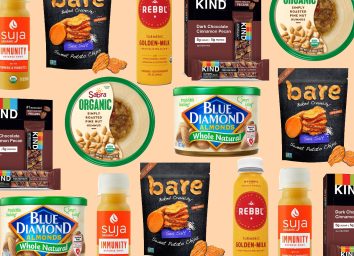20 Surprising Foods That Weaken Your Immune System
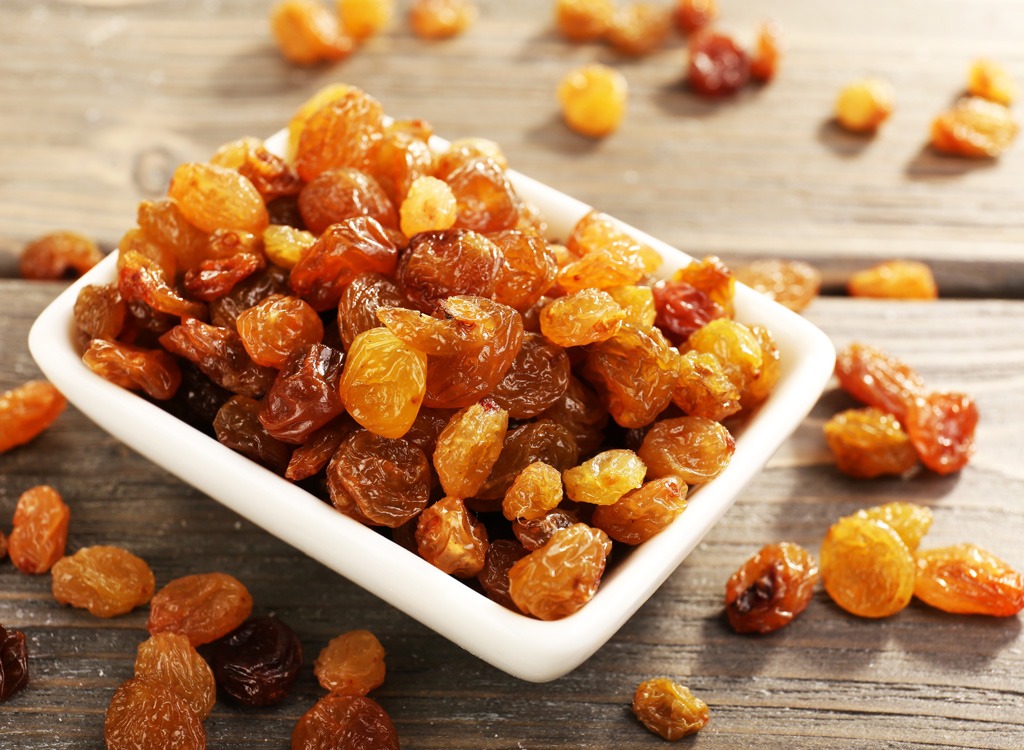
It's more important than ever to take good care of your immune system, and while eating immune-boosting foods like oranges and broccoli can certainly help, avoiding other foods may be even more important.
"With the coronavirus spreading through communities, there's a lot of talk about important measures like hand-washing, social distancing, and not touching our faces or shaking hands," says Dr. Anna Cabeca, author of Keto-Green 16. "Yes, we should be practicing all of these, for sure. But not many experts are talking about something I feel is just as vital: strengthening your immune system."
"If pathogens enter your body, the immune system will dispatch white blood cells to fight it off and will not stop until the threat is gone," Dr. Cabeca says. "If your immunity is weak or compromised in some way, the immune system has a tough time doing its job—and your susceptibility to catching the coronavirus, the flu, a cold, or other infection increases."
Below are the foods you might not suspect that could be keeping your immune system from doing its job, increasing the likelihood that you'll fall ill—whether it's now during the pandemic, or in the future. Be sure you stock up on The 7 Healthiest Foods to Eat Right Now instead.
White Bread

White bread is a prime culprit for suppressing the immune system, according to Dr. Josh Axe, D.N.M., C.N.S., D.C., founder of Ancient Nutrition and DrAxe.com.
"White bread, cookies, cakes, rolls, etc. that are made with white flour tend to be high in calories and low in nutrients," says Axe, "so they can contribute to weight gain and risks associated with obesity/insulin resistance."
White bread can also contribute to inflammation, according to CJ Hammond, an XPS, FMT, and NASM Certified Trainer, diminishing the body's ability to protect or heal itself.
"When the immune system is spread thin trying to regulate and prevent inflammation or fight off diseases it won't allow the body to use the immune system at its full capabilities," Hammond says.
Products made with refined grains like white bread are also likely to contain additives that can be hard on the immune system, notes Axe. To add insult to injury, for people who cannot tolerate gluten, "this can be a stress to the entire immune system."
Candy
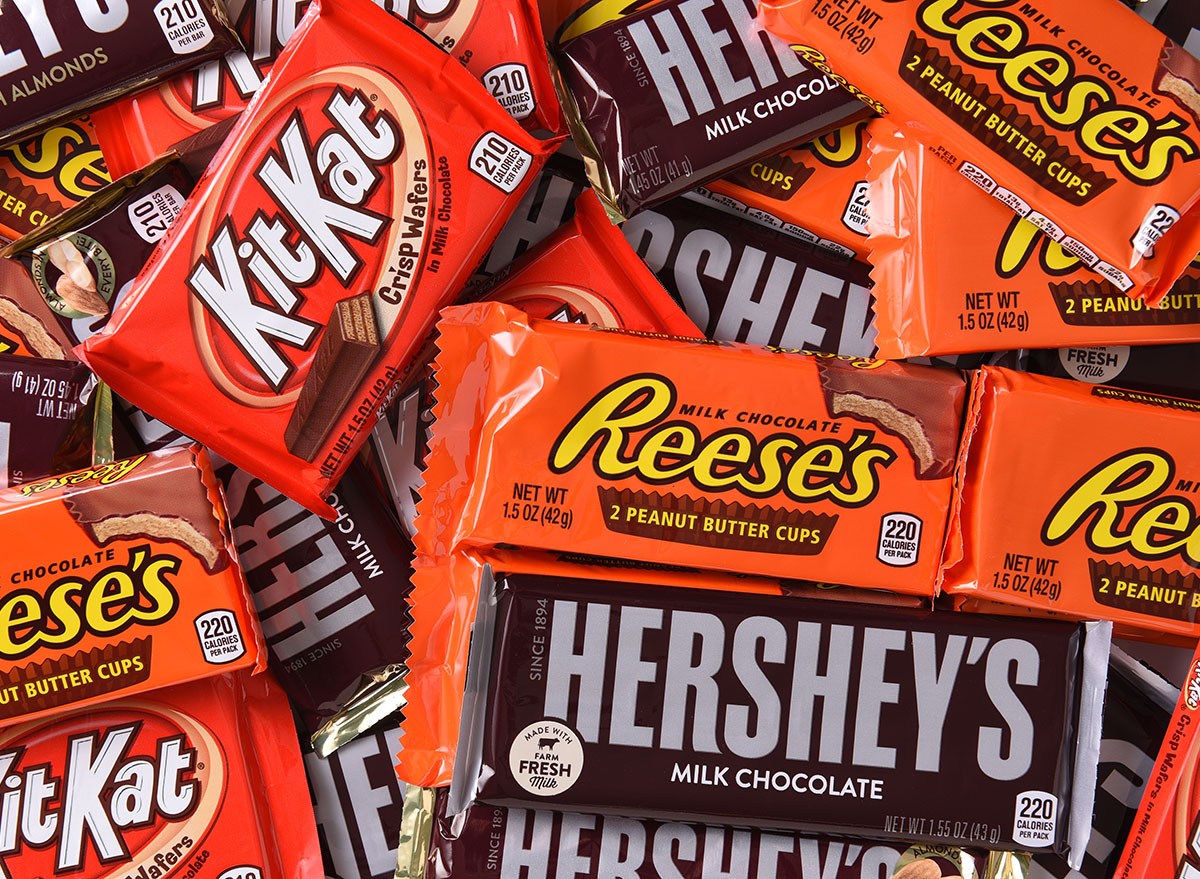
It's no secret that candy isn't necessarily the healthiest for you, but there really is nothing worse for your immune system than candy.
"Sugar wrecks your immune system, both in the short-term and the long-term," says Dan DeFigio, nutrition expert and author of Beating Sugar Addiction For Dummies. He cites studies suggesting that consuming sugar could hinder your cells' ability to attack foreign bacteria.
"This effect occurs rapidly after eating sugar, and lasts for several hours afterward," says DeFigio. "If you eat sugary foods several times per day, you are keeping your immune system in a depressed state almost constantly!"
When sustained over the long term, explains Holistic Health Coach Kerri Axelrod, a high-sugar diet can also destroy gut flora, which depresses the immune system further.
"An unbalanced bacterial flora with, for instance, too many opportunistic pathogens, can shift the immune system to an increased inflammatory state," she says.
Honey

While honey might seem like a healthier alternative to refined sugar, this isn't quite the case. According to Dr. Ivy Branin, "natural" sugars like honey, maple syrup, and molasses can be "similarly problematic" to sugar.
If you need some help curbing your sweet tooth, check out these no-sugar-added recipes you'll actually look forward to eating.
Raisins
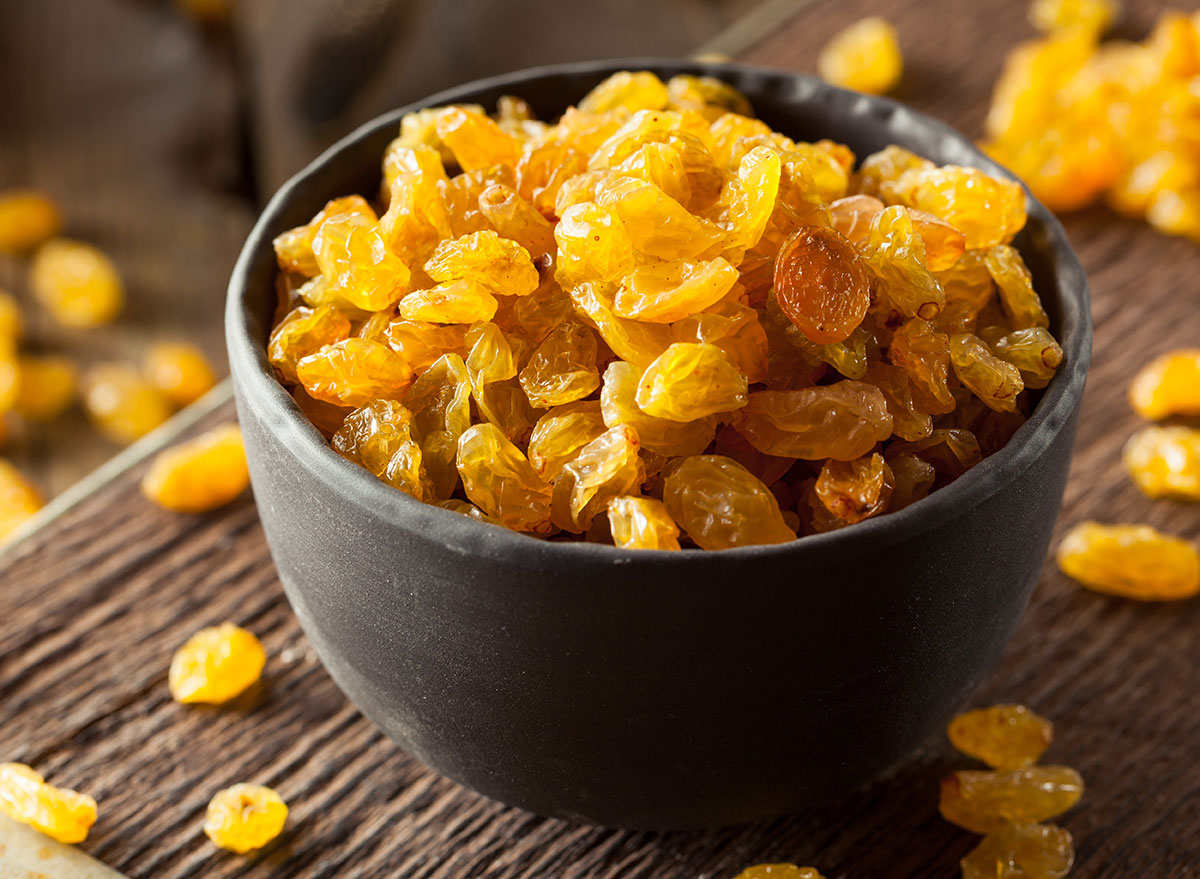
Much like honey, the natural sugars in raisins and other dried fruits can spike your sugar levels, Dr. Branin warns.
"Even if you aren't eating dessert or super sugary foods, it's likely that you're going above the suggested six teaspoons of added sugar per day for women and nine teaspoons for men," echoes Samantha Cassetty, MS, RD, nutrition and wellness expert.
Fruit Juice
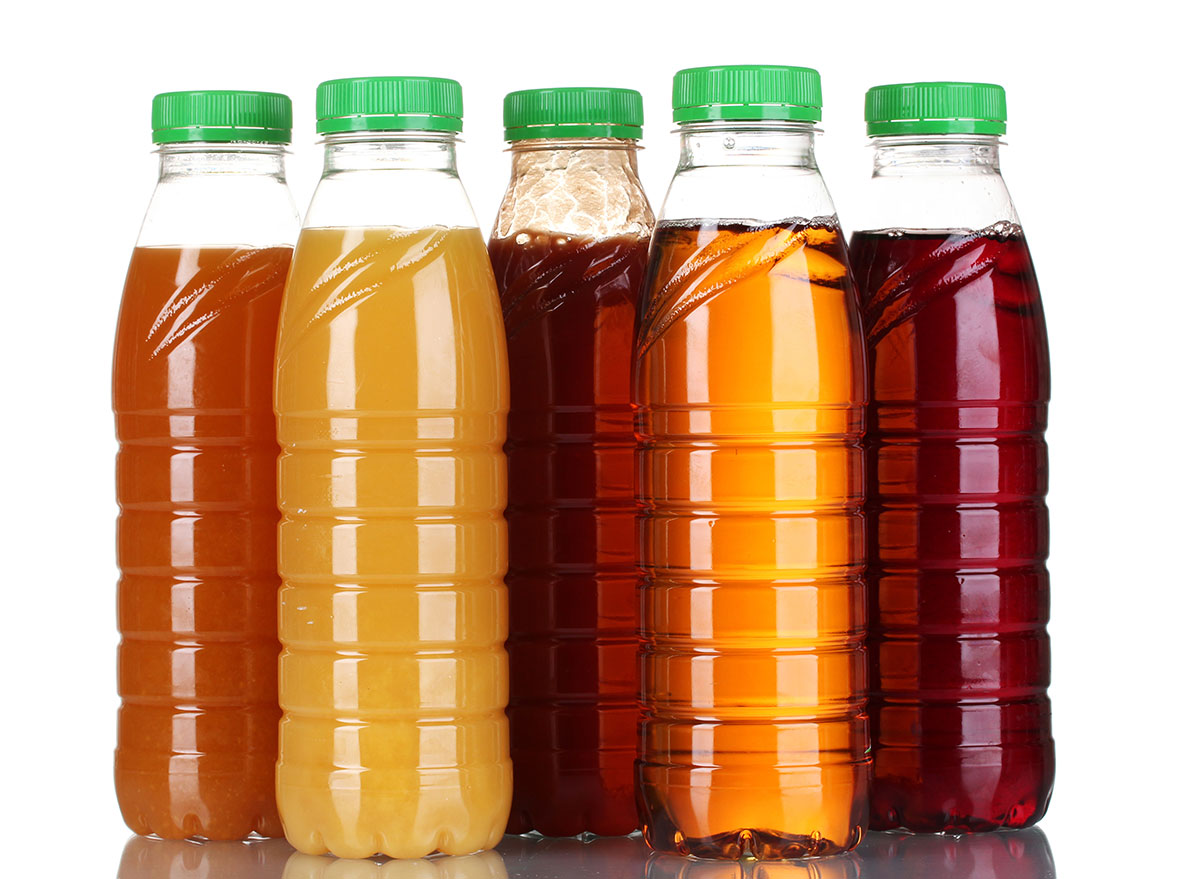
Fruit juice is another culprit for added sugar that, Axe notes, can be "especially problematic."
"Drinks like soda, juices and sweetened teas or energy drinks have been linked to having a negative impact on cardiometabolic health, diabetes risk, body weight, and obesity, and according to recent studies, even cancer risk," he says.
Unripe Bananas

Even the natural sugars in fruits can have a negative impact on your immune system and gut health, and this is even more true when they are unripe. Bananas, but also other unripe fruits and vegetables, can contain high amounts of a protein called lectin, explains Vinay Amin, Health Expert & CEO at Eu Natural.
"Studies show that lectin may disrupt the absorption of nutrients and inhibit the production of intestinal flora," says Amin. "In turn, this weakens your gut barrier, the intestinal wall that defends the body from toxins and harmful bacteria."
Soda

While all forms of sugar can pose a problem to the immune system, soda is perhaps the worst culprit. In addition to being loaded with sugar, it's also filled with artificial colors that, according to Alicia Galvin, RD, a resident dietitian for Sovereign Laboratories, can "negatively affect the gastrointestinal lining."
Hammond adds that carbonated drinks often contain phosphorus, which "can lead to a depletion of calcium from the cells through the kidneys." And since calcium plays an essential role in the activation of cells in the immune system, low calcium means lower immunity.
Tofu
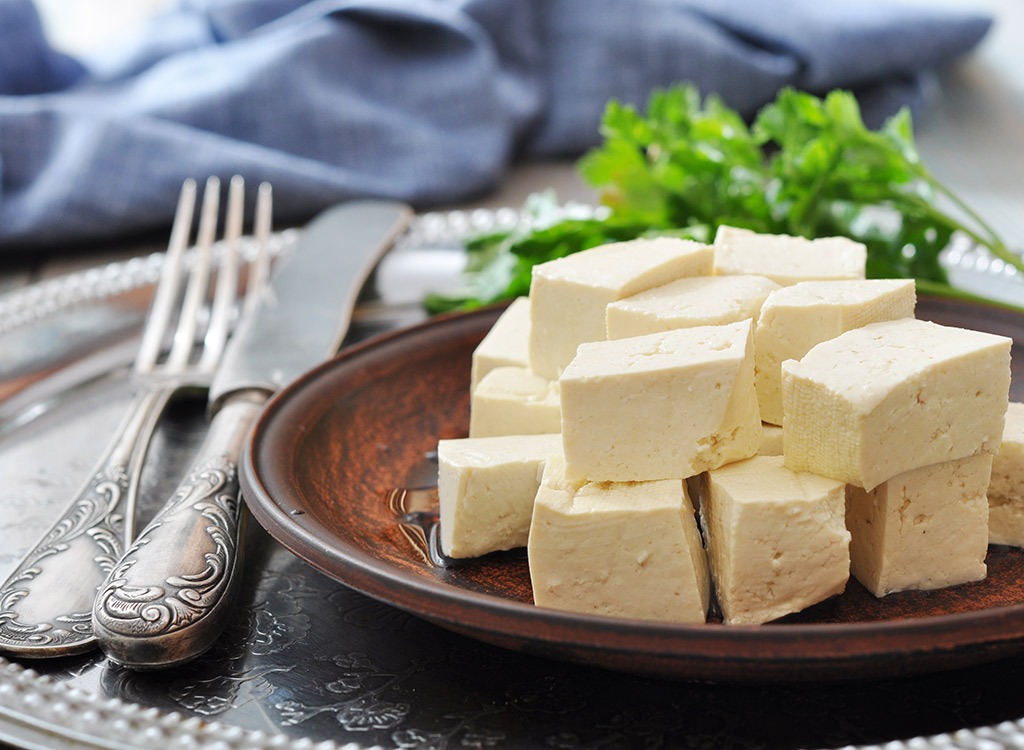
While many consider tofu a health food, it can be problematic for a number of reasons, not the least of which is a high concentration of omega-6 fatty acids. These fats have been linked to a heightened inflammatory response in the body, especially when out of balance with the omega-3 fatty acids found in fish and some nuts and seeds.
"By no means do you need to eliminate tofu," says Amin, "but you should think twice before making it a staple in every meal."
Soy is also a common allergen, notes Axe. While it "may not be a problem for everyone," he says, it can be "especially taxing to people prone to gut and autoimmune issues."
"When someone eats an allergen, their immune system may overreact by producing antibodies that are intended to 'attack' the allergen," he says. "However these antibodies can damage to the person's own organs, leading to a variety of symptoms."
Vegetable Oil

Oils like sunflower, soybean, and corn are also high in inflammatory omega-6 fatty acids—and they don't even have the protein of tofu, making them a far worse choice.
"The body can convert the most common omega-6, linolenic acid, into another fatty acid called arachidonic acid which is a building block for molecules that can promote inflammation," says Axe.
Potato Chips
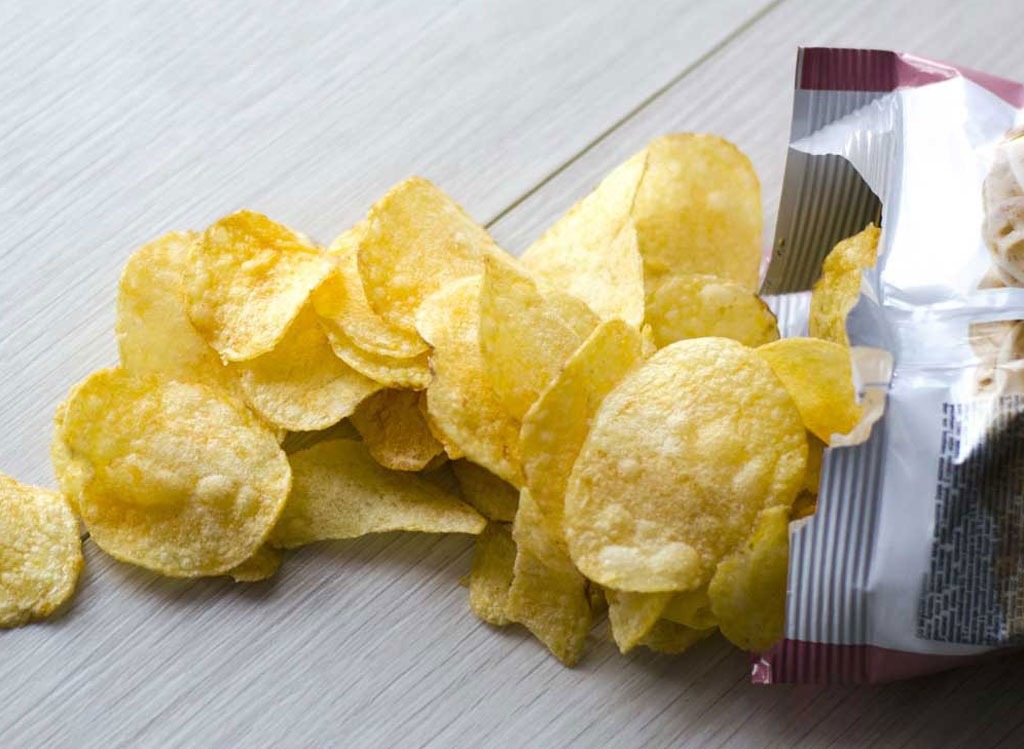
Potato chips are also an immune system nightmare. Not only are they fried in vegetable oil, but they're also high in salt, which, according to a recent study from the University of Bonn, can contribute to immune deficiencies.
Fast Food
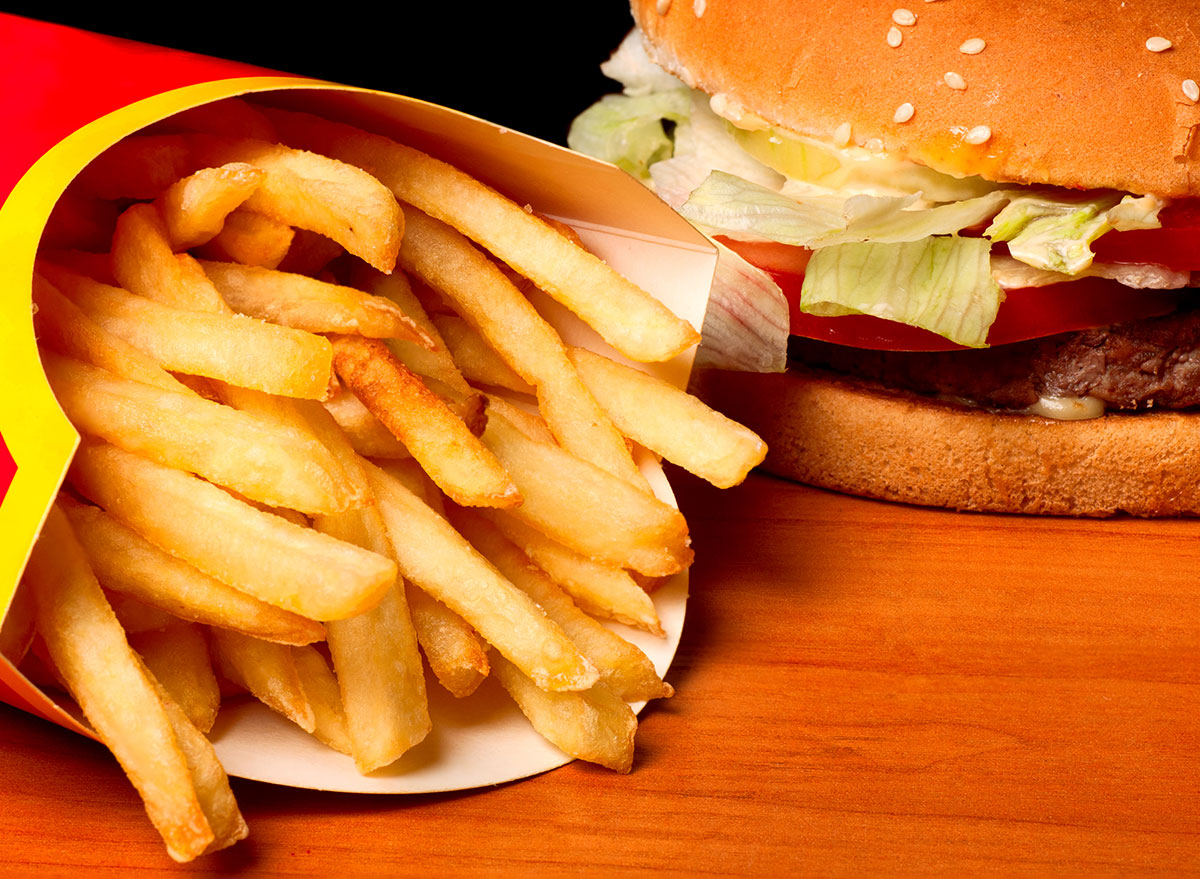
In addition to tests on mice, that same University of Bonn study conducted some research on human volunteers. These volunteers consumed an additional six grams of salt per day—the salt content of two fast-food meals—and showed "pronounced immune deficiencies," according to the study. If you're looking for more reasons to cut out those frequent trips to McDonald's, check out these 7 Amazing Things That Happen When You Give Up Fast Food.
Beer

Alcohol like beer and wine can increase susceptibility to infection, according to Dr. Branin.
"Chronic alcohol use actually interferes with normal functioning of all aspects of the adaptive immune response," she says. "Alcohol also increases the stress hormone cortisol, blood sugar, and insulin, and all three can negatively impact immune function when elevated."
Mary Shackelton, ND, cites a paper published in the journal Alcohol Research, in which study authors noted a "long-observed relationship" between excessive consumption of alcohol and impaired immune response.
"The effect includes an increased susceptibility to pneumonia, and a greater likelihood of developing acute respiratory stress syndromes (ARDS)—factors that could potentially impact COVID-19 outcomes," she says.
Cocktails

These issues hold doubly true for cocktails, which contain sugary fruit juices or sodas in addition to hard liquor, for a one-two punch to the immune system.
Pasteurized Cheese
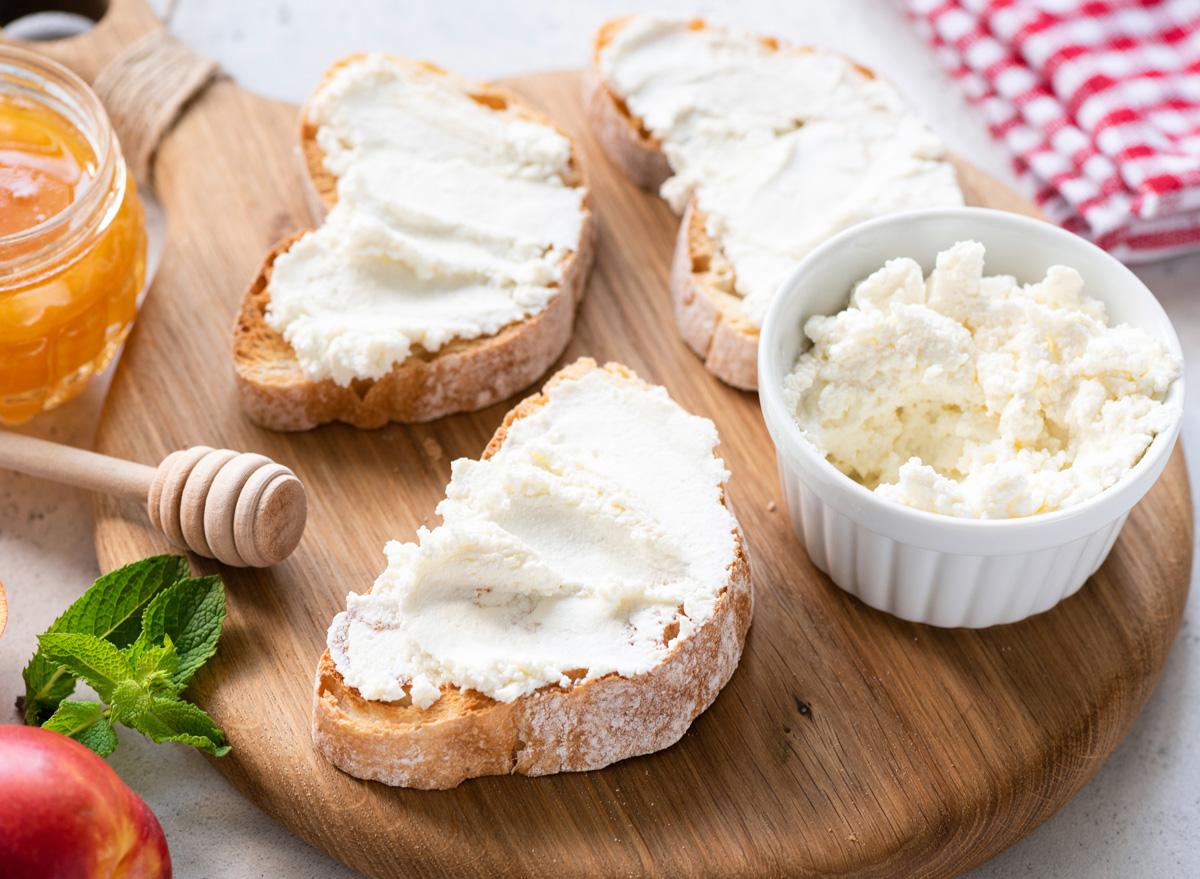
Dairy is mucus-forming for most people, explains Dr. Branin, which can make you more prone to a cold or flu. Dairy can also contribute to increased inflammation, hindering immune response.
Raw Milk Cheese
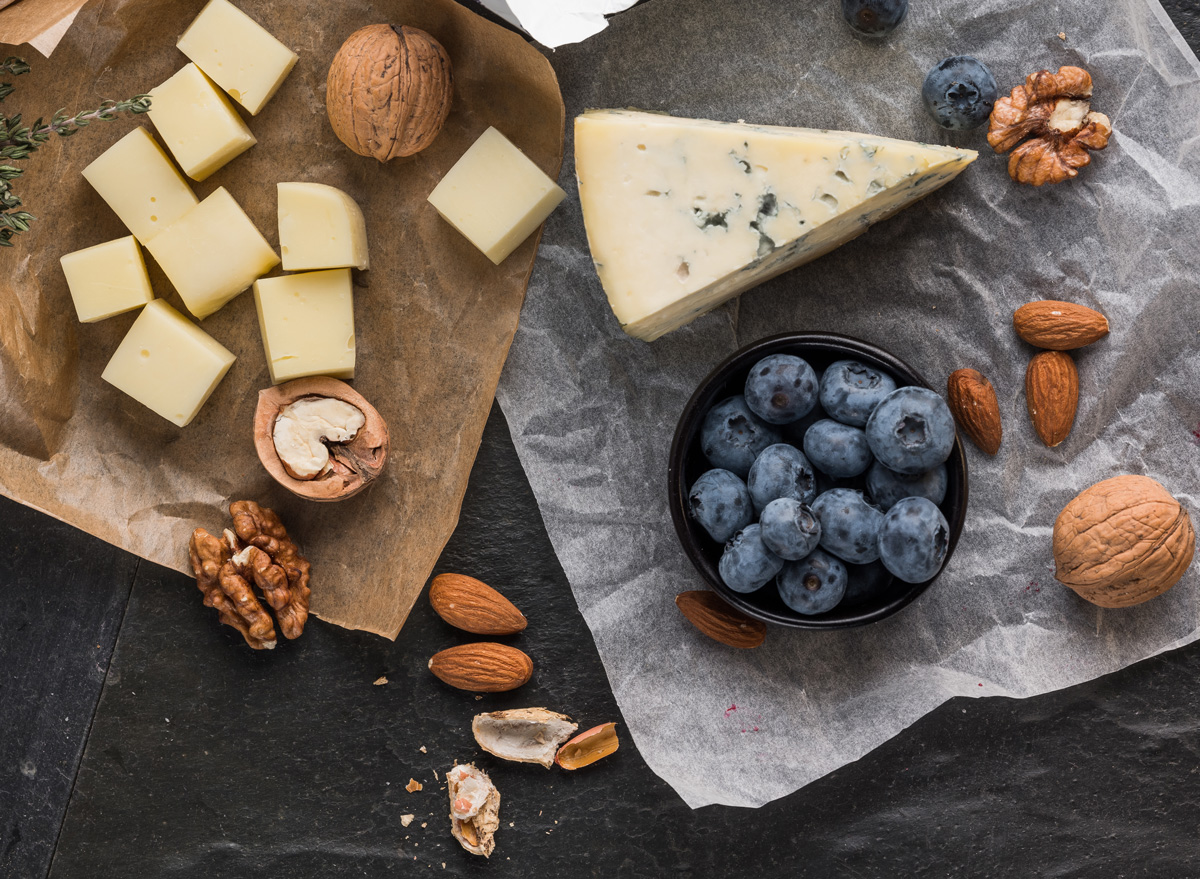
Jamie Hickey, personal trainer and nutritionist at Truism Fitness, explains that even raw dairy contains problematic hormones like estrogen and progesterone.
"The pasteurization process kills all hormones whether they are synthetic or natural," Hickey says, noting that in raw milk dairy, these hormones are "at their highest concentration, since it hasn't been put through any type of manufacturing process yet."
Red Meat

High-acid foods like red meat can weaken your immune system, according to Dr. Cabeca.
"When you consume too many acidic foods, your body's overall pH load will become acidic," she says. "When that acid load remains high, minerals like magnesium, calcium, potassium and bicarbonate become low, adversely impacting your health." Red meat is also rich in omega-6 fatty acids and is, therefore, doubly inflammatory.
Hot Dogs

Not only are hot dogs high in both acid and salt, they are also processed, which is a big immune system no-no, according to Axe.
"High consumption of cured and processed meats like bacon, salami, cold cuts, and hot dogs has been linked to negative health outcomes like higher risk for some types of cancer," he says. "Processed meats can contain harmful chemicals (such as polycyclic aromatic hydrocarbon) that form during the cooking/manufacturing process and are also usually high in salt, nitrates and other additives that can lead to oxidative stress."
Breakfast Cereal
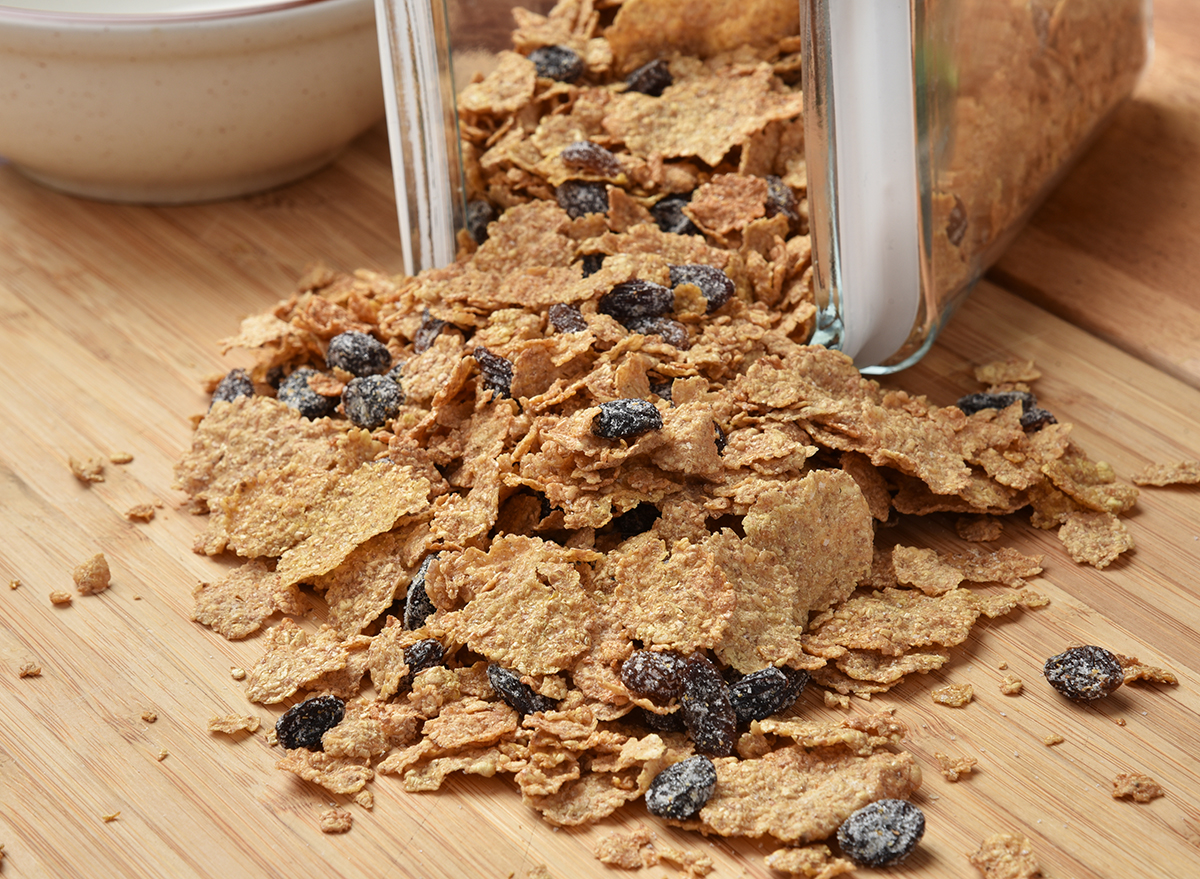
Most breakfast cereal is both high in sugar and low in fiber, a problematic combo for the immune system, according to Axelrod.
"Soluble fiber boosts the production of the protein interleukin-4, which stimulates the body's infection-fighting T-cells," she says. "Fiber also provides the key food for beneficial bacteria in your gut to thrive."
Packaged Cookies
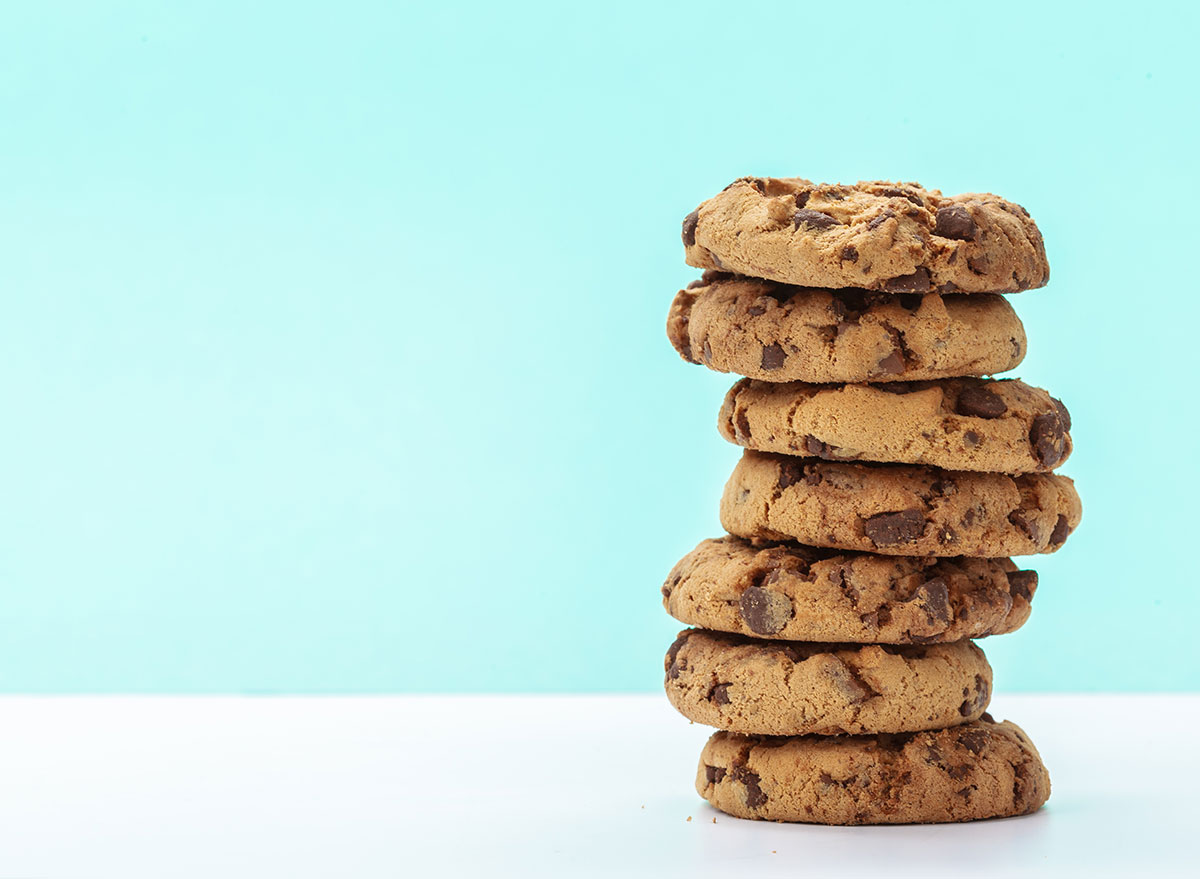
Much like breakfast cereal, packaged cookies and cakes contain lots of added sugar and no soluble fiber.
"Most packaged and processed foods are stripped of fiber and other key nutrients," says Shackelton. "Research shows that a higher intake of dietary fiber supports healthier immune function, including protection against viruses."
Canned Pasta
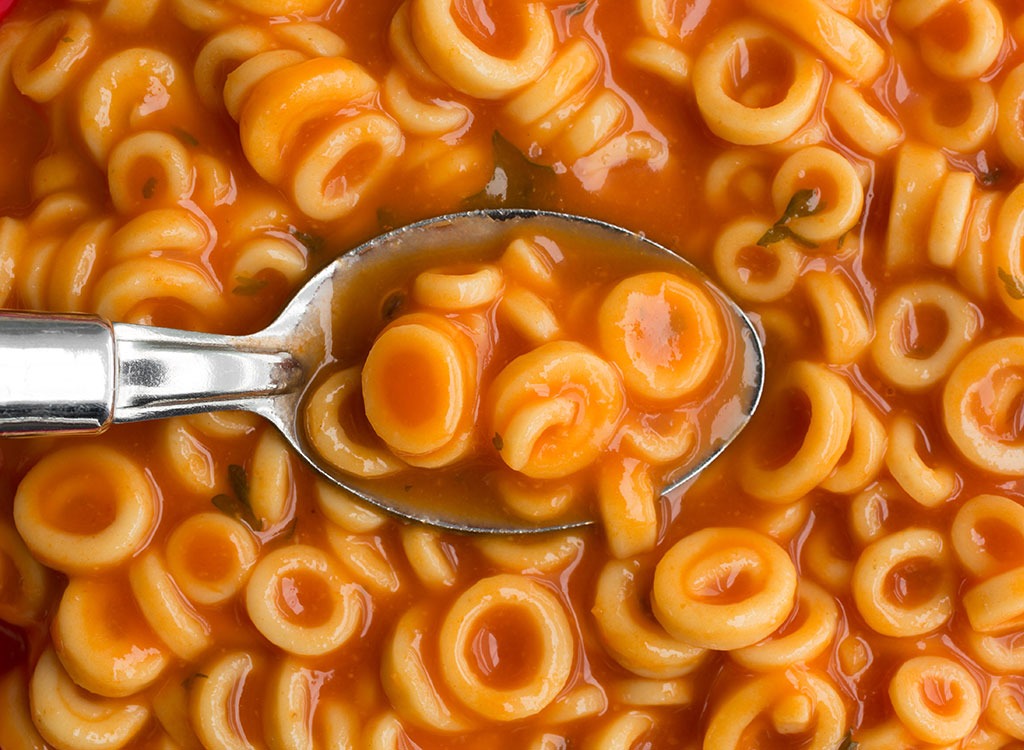
Other processed foods, like canned pasta, can also have a negative effect on the body, according to Hammond. He says that the word "canned" should be considered "another term for processed." Canned pastas, especially, are usually filled with salt, sugar, and other additives that "can reduce the body's ability to recuperate from stress-induced activities."
By avoiding these foods and opting instead for a diet rich in fruits, vegetables, whole grains, and fish, you can promote a healthy immune system naturally.
